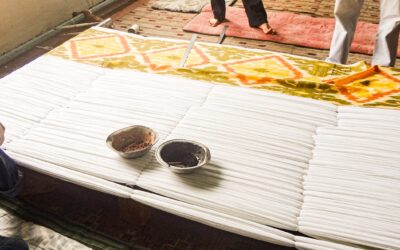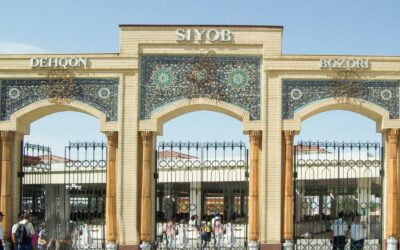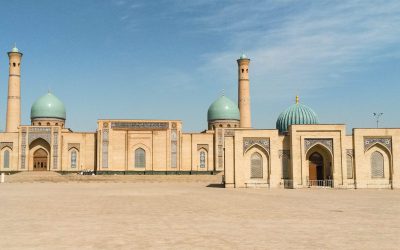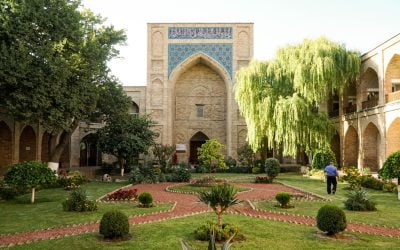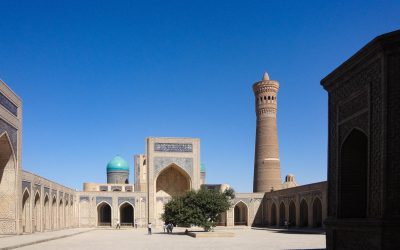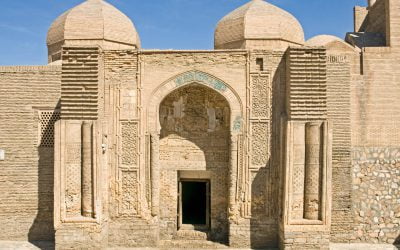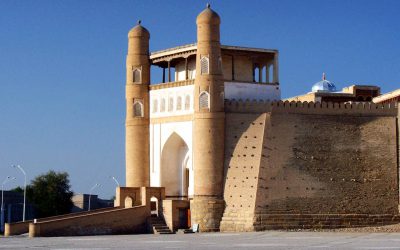ULUGBEK AND ABDULAZIZ KHAN MADRASAHS
Situated north of the center of the Old City, the madrasah lies just off Khodja Nurobobod Street. The Abdulaziz Khan Madrasah is directly opposite it, on the other side of the road.
HERITAGE SITE | ULUGBEK AND ABDULAZIZ KHAN MADRASAHS
-
Ulugbek Madrasah
-
The Ulugbek Madrasah is one of a pair. With the Abdulaziz Khan Madrasah directly opposite it, but built two centuries later, they form a set of “kosh” (double) madrasahs.
-
The Ulugbek Madrasah was built in 1417 and is Central Asia’s oldest. Ulugbek, who is a grandson of Temur (Tamerlane), was unlike most of the other ruling-elite who were engaged in near-perpetual warfare. He pursued studies in science, astronomy and mathematics and excelled in them all. During his 40-year reign, he sponsored learning an education to the stage that the city of Samarkand city gained fame as a Center of Science during the Middle Ages.
-
The madrasah was built by the best architects of the time, Ismail Isfagani and Najmeddin Bukhari. The structure has minimal decoration and yet looks impressive and majestic. It is a rectangular building with a large portal and a courtyard. It features an entrance portal that leads to two corridors: one to the musjid and the other to the darskhona (classrooms). This was unique as the common design at the time was to lead straight from the entrance into the courtyard.
-
Besides this madrasah in Bukhara, he built two other madrasahs in Samarkand and Gijduvan.
Abdulaziz Khan Madrasah
-
The Abdulaziz Khan Madrasah was built two centuries after the Ulugbek Madrasah in 1652CE and is much larger and more striking in appearance. The portal of madrasah is adorned with rich patterns where different decorative techniques were used in its construction: relief majolica, marble carving, tile and brick mosaic, wall painting and even gilding.
-
The Madrasah features a winter and summer musjid which are also splendidly decorated.
-


